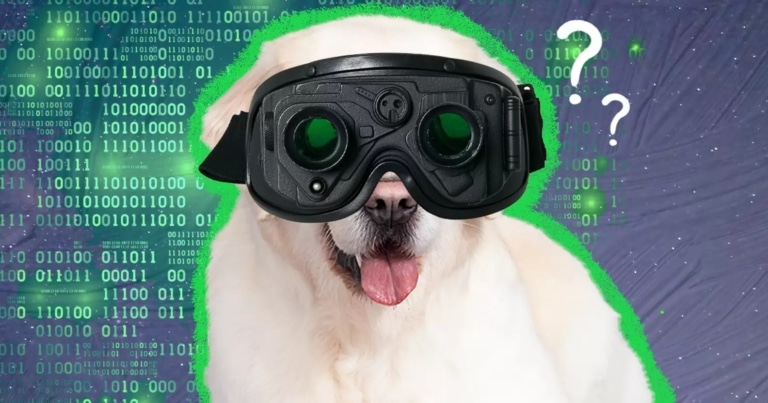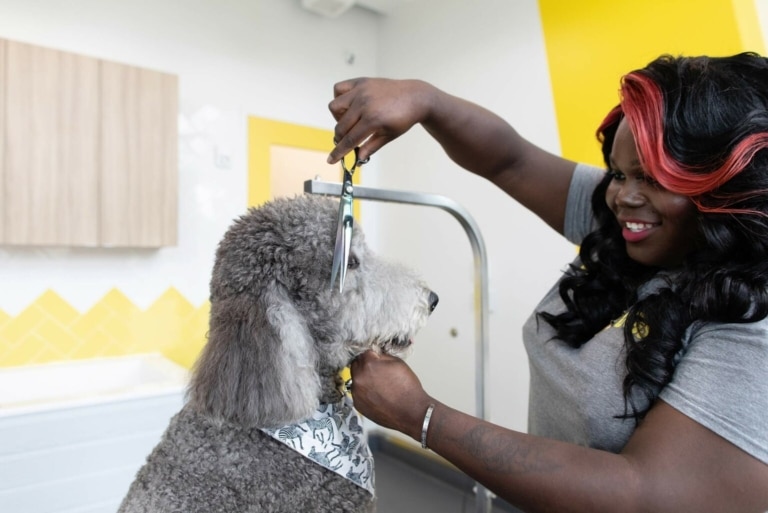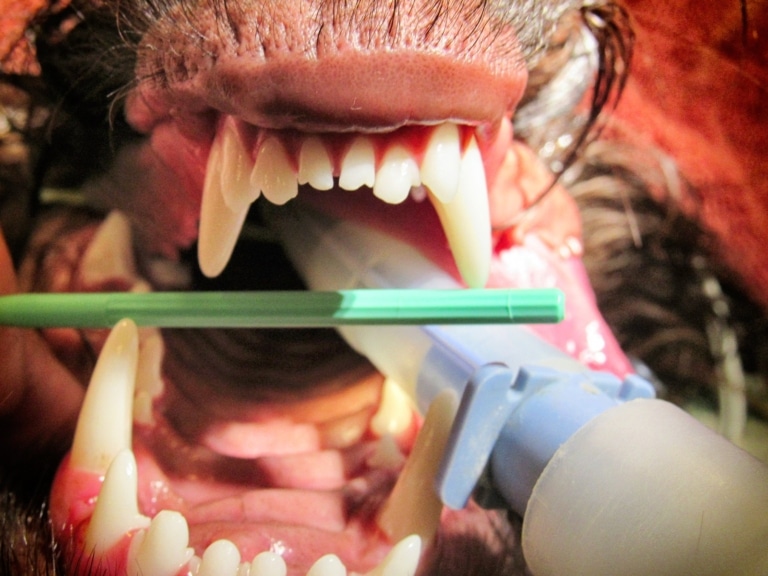Dogs are not just faithful friends and companions, but also complex living beings with their own instincts, emotions and behavioral characteristics. Often, dog owners are faced with the behavior of their pets, which may seem strange, incomprehensible or even problematic. Questions like “Why does my dog howl at night?” or “Why does she keep biting my shoes?” not uncommon in the world of dog breeding. These behavioral characteristics can be caused by many factors, including genetic predisposition, upbringing, social environment, and current physical condition.
Problematic behavior in dogs can vary from mild discomfort to serious behavioral disorders that can significantly affect the quality of life of both the animals themselves and their owners. For example, constant barking may be a sign of anxiety or boredom, while aggression may indicate deeper issues such as fear or neurological disorders.
Understanding the reasons for such behavior helps owners to take better care of their Pupils and contributes to the development of a deeper and more harmonious bond between a dog and a person.
In this article, we will look at ten “problematic whys” in dog behavior that are most common and try to find answers to these important questions:
1. Why do dogs howl?
Howling for dogs is a way of communication and part of their instinctual heritage. It is a way of communication at a distance. They use it to pack, mark territory, or even to express anxiety and worry. In domestic settings, dogs may howl in response to certain sounds (such as sirens) to attract attention or as a reaction to loneliness and separation from their owner.
Ways to reduce howling
To reduce howling, it is important to pay enough attention to meeting the physical and emotional needs of the dog. Regular walks, games and exercises help relieve tension and boredom. If a dog howls when left alone at home, it can be taught to stay alone gradually, providing comfort and safety.
2. Why do dogs moan?
A dog’s moaning can be due to a variety of factors, including comfort, illness, fear or excitement. Sometimes dogs moan when they are seeking attention or trying to express their emotional needs. In other cases, especially if the moaning is accompanied by unusual behavior, it may be a sign of pain or discomfort.
When should you consult a veterinarian?
If the moaning seems unusual or is accompanied by other symptoms (such as decreased activity, refusal to eat, changes in behavior), you should contact your veterinarian immediately to rule out possible diseases.
3. Why do dogs eat feces?
Coprophagia, or the eating of feces, can be caused by behavioral or medical reasons. Among the behavioral factors – because of boredom or curiosity, dogs can explore and eat feces. Medical causes include nutrient deficiencies, digestive problems, or disease.
Tips for preventing this behavior
To prevent coprophagia, it is important to provide your dog with a balanced diet, clean up regularly, and provide sufficient physical and mental exercise. In some cases, a consultation with a veterinarian or a therapist may be necessary to identify and eliminate the root cause of such behavior.
4. Why does a dog bark at some people and not at others?
A dog’s barking in response to the presence of people is often related to their instincts and level of socialization. Dogs that have not been properly socialized with people at a young age may react to them with fear or aggression. Also, dogs have a protective instinct and may bark at strangers to protect their territory or family. Some dogs are more sensitive and may bark in response to certain types of people or unusual behavior.
How to teach a dog to distinguish “friend” from “enemy”
Teaching a dog to distinguish safe people from potential threats takes time and patience. Regular socialization sessions where the dog meets different people in a calm and controlled environment can help. Encouraging calm behavior with treats and praise when meeting new people is also helpful. It’s also important to pay attention to the signals your dog is giving and not to force him to interact if he feels dislike or fear.
5. Why does a pet dog growl at its owner?
Growling at the owner can be caused by fear, illness, protection of resources (such as food or toys) or even problems in the hierarchy in the “pack”. In some cases, it may be a reaction to unexpected or rude behavior. Understanding the reasons for such behavior requires careful observation.
Behavior correction methods
Correcting aggressive behavior begins with creating a safe and positive environment for the dog. Avoid punishments that may increase aggression and instead use positive reinforcement to encourage calm behavior. In difficult cases, the help of a professional trainer may be needed.
6. Why do dogs lick their owners?
Licking is a natural way for dogs to communicate, which they use to show affection, ask for attention, or even as a way to explore the world. In dogs, this behavior is formed from puppyhood, when mothers lick their puppies for grooming and social bonding.
If this becomes a problem
Although licking is usually a sign of love and affection, excessive licking can be a sign of anxiety, boredom, or even illness. If the dog licks too often or persistently, especially if it is accompanied by other changes in behavior, it is worth consulting a veterinarian to rule out medical causes.
7. Why does a dog shiver if it is definitely not cold?
Shivering in dogs can be associated not only with the cold, but also with a number of other reasons. Emotional factors such as fear, worry, or stress can cause tremors. Physiological causes include illness, pain, or even aging. In some cases, tremors can be a symptom of a serious medical condition, such as general weakness or neurological problems.
When should you worry?
If the shaking is accompanied by other symptoms (such as apathy, refusal to eat, a change in behavior), or if it occurs regularly and for no apparent reason, it is necessary to consult a veterinarian. It is important to pay attention to the context in which the tremor occurs to help determine its cause.
8. Why does the dog scratch the floor?
This can be part of the instinctive behavior of dogs to seek comfort or protection, especially if they try to “make a nest” before resting. However, this behavior can also be a sign of boredom, excess energy or stress. In some cases, this may be due to behavioral problems such as disruptive behavior or obsessive-compulsive disorder.
Methods of prevention
To prevent a scratchy floor, it is important to give your dog enough exercise and mental stimulation. Brain-stimulating toys and regular walks can help.
9. Why does the dog run away from home?
Dogs can run away from home for many reasons. Instinctive reasons include searching for a mate, hunting or exploring the surroundings. Behavioral factors can include boredom, excess energy, inattention, or even fear and anxiety. In some cases, running away may be an attempt to escape negative conditions in the home, such as noise or aggression.
Precautions and training
To prevent escape, it is important to ensure the physical security of the house and the surrounding area, for example, by installing reliable fences. Providing sufficient physical and mental exercise also helps to meet the dog’s natural needs. Learning recall commands and socializing your dog will help manage his behavior and prevent problems. If running away becomes a habit, the help of a professional trainer may be needed to identify and address underlying behavioral problems.
10. Why does the dog often hiccup?
Hiccups in dogs can be caused by a variety of physiological and medical reasons. In many cases, this is a normal and harmless phenomenon caused by rapid breathing or excitement, which leads to temporary irritation of the diaphragm. However, in some cases, frequent hiccups can be a sign of digestive problems, allergies or even respiratory diseases.
The importance of observing the dog’s behavior
Timely response to changes in the dog’s behavior will help prevent many problems related to their health. Any strange or problematic behavior may be the result of poor grooming or poor health.
The importance of quality care and grooming
Quality dog care, including regular grooming, plays an important role in maintaining the well-being of the Tails. In our V.O.G DOG salons in Kyiv, experienced groomers will help your dog look its best and give invaluable recommendations for care of the coat, skin and general health of the Pet. Our professionals have dealt with many different problems in dogs and have the knowledge and experience to identify potential problems in your dog’s care and offer effective solutions.
We invite you to visit our beauty salon for dogs V.O.G DOG, where your Pet will be given the highest quality care. Don’t miss the opportunity to improve your Tail’s health and strengthen your bond with him.









